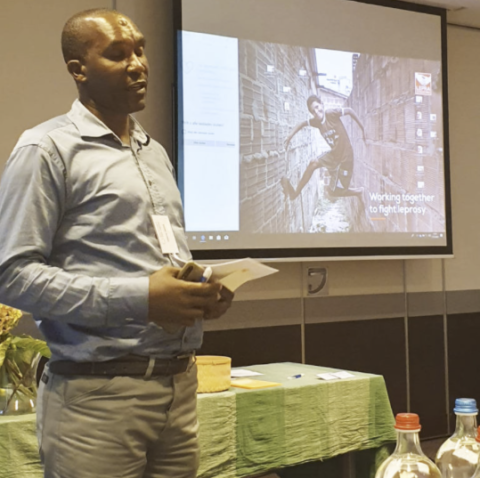
Workshop explores how to scale up PEP and advance research
The Leprosy Research Initiative (LRI), NLR, and the Global Partnership for Zero Leprosy (GPZL) hosted a 4-day workshop in Amsterdam, 5-8 November 2019, to discuss issues related to post-exposure prophylaxis (PEP).
PEP involves the use of preventative antibiotics given to close contacts of people diagnosed with leprosy, such as family members or neighbours.
For this workshop, researchers and programmatic partners came together to work out common country packages for implementation and to develop proposal outlines to advance PEP research. The workshop was composed of two distinctive groups, one focusing on research and one on operations. The groups worked separately but had daily exchange sessions to feed relevant topics in each other’s agendas.
The operations group developed three specific country profiles: PEP start-up; PEP scale-up; and PEP last-mile. These profiles will help countries with preparing, implementing and evaluating PEP into their national programmes. The tool developed for this workshop will be uploaded in the Zero Leprosy Toolkit with detailed examples. The results of this operations group will also be documented into a joint publication.
The research working group initially focused on the four topics in the context of PEP: (1) PEP targeting and delivery; (2) New regimen; (3) Mapping; (4) Modelling and Investment Case. One concrete idea that will be further developed over the coming months is a decision matrix which will include a number of indicators that may have a differential impact on the choice of PEP strategy in different endemic settings. Such a matrix will assist countries in choosing the most preferred PEP strategy and when finalized will be included in the GPZL Toolkit.
Both groups worked on their specific tasks, but time for daily exchange was arranged so draft plans could be presented between the two groups. During one of the days, Dr. Anung Sughantono, Director, General Infectious Diseases, Ministry of Health, Indonesia shared two important lessons:
- PEP brings new hope to the health workers and local programme managers; and
- PEP helps the community to sense that leprosy is preventable. Mr Joshua Oraga of IDEA Kenya, reminded participants again of the importance of engaging persons affected by leprosy as experts in all activities.
This was the first workshop of its kind organized by GPZL, LRI and NLR. Lessons from this workshop will help organize future workshops. To review best practices for PEP, visit the Zero Leprosy Toolkit.
Reposted with permission from the Global Partnership for Zero Leprosy – originally published in November 2019 here.